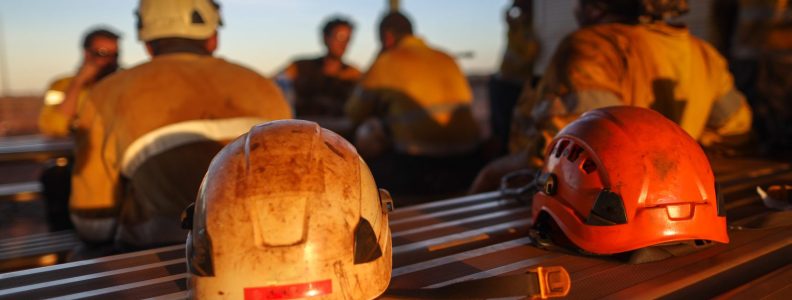Too hot, too cold, too loud, too bright — there are many reasons it can be difficult to fall asleep and stay asleep, which is especially true for Australia’s 100,000-plus resources workers who work fly-in fly-out rosters.
 Previous research has found FIFO shift workers are particularly sleep-deprived and at risk of developing sleep disorders — so Edith Cowan University (ECU) is investigating what can be done to improve workers’ wellbeing.
Previous research has found FIFO shift workers are particularly sleep-deprived and at risk of developing sleep disorders — so Edith Cowan University (ECU) is investigating what can be done to improve workers’ wellbeing.
A new, first-of-its-kind study will look at where remote workers in the resources industry are sleeping to see how it impacts their quality of sleep.
Researchers are calling for participants to take part in an online survey, where they can also offer to participate in another study in which workers will wear a sleep tracker to bed and have a light/temperature data logger placed nearby.
ECU PhD candidate and lead researcher Philipp Beranek said it was vital to investigate what can be done to improve resources workers’ sleep health.
“Sleep is a paramount physiological state for health and performance while we’re awake” he said.
“We know resources workers experience sleep difficulties; therefore, investigating modifiable factors which impact sleep is crucial.
“Our main aim is to investigate the relationship between the sleep environment and the sleep of shift workers in the sector.”
Serious consequences
ECU has previously conducted the biggest study of its kind on the sleeping habits of FIFO shift workers, in which 60 per cent of participants were at risk of developing sleep disorders such as obstructive sleep apnoea and shift work disorder.
Mr Beranek said adequate sleep was especially important in an industry as potentially hazardous as the resources sector.
“Sleep loss can negatively affect mood, the immune system and cognitive functioning such as attention and memory,” he said.
“It can result in increased risk of workplace accidents, increased absenteeism and reduced job satisfaction and team effectiveness, with financial consequences for employees and employers.
“The sleep environment has been identified as a crucial element in fatigue risk management and initial studies in other populations indicate sleep environment factors such as light and temperature can negatively impact sleep.
“To date, no study has investigated the sleep environment and its influence on the sleep of shift workers in extractive industries; our study is designed to close this gap.”
Better at home?
ECU’s previous research discovered FIFO shift workers accumulate “sleep debt” over the course of their time working on-site, before they then return home.
While it’s assumed this would allow workers to catch up on sleep, Mr Beranek said the impacts of sleep debt could continue to be felt after returning home.
“Accumulated sleep loss can increase the risk of poor mental health and cardiovascular health,” he said.
“We also want to find out if workers’ sleep does actually improve once they’re in their own bed: do they have children waking them up, noisy neighbours, social commitments keeping them from getting enough sleep?”
To answer these questions, study participants will continue to monitor their sleep environments during their time off work.
Mr Beranek said the study’s findings could help improve the sleep health of workers outside the resources sector, and the broader public.
“Research from the Sleep Health Foundation found inadequate sleep cost Australia $66.3 billion in 2016-17 — so it’s a major issue, not just in the resources sector,” he said.
“Improving this situation is in everyone’s interests, so we are expecting this research to lead to individual and organisational changes for the better.”
If you would like to take part in the survey, visit the ECU study homepage to register your interest.
Source: ECU, August 2023

 Safety Australia Group
Safety Australia Group